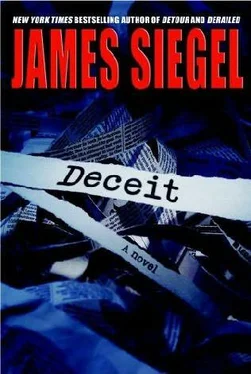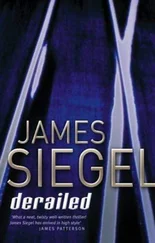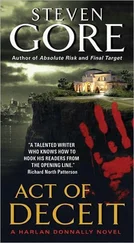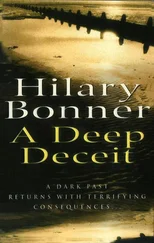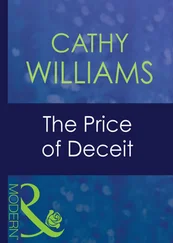“Yes.”
“Good for him. Is this an experiment in rehabilitative journalism?”
“You’d have to ask him.”
“Maybe I should do that. I mean, it’s kind of like letting a child molester back into the classroom, isn’t it?”
“It’s old news. I’ve paid my court-ordered debt to society. Honest. Why don’t we drop it? I just wanted to know if you had any information on…”
“It’s your debt to journalism I’m concerned about,” he interrupted me. “You can’t repay that debt. People like you come along, it leaves a stink on all of us. It breaks the sacred bond. Makes us all look like tabloid writers,” he said, his voice rising. “You were legitimate. The real deal. You got to where the rest of us all hoped we could get. Even if we couldn’t. You got the average Joe thinking, maybe it’s all bullshit. Reality TV-phony baloney, all made up. That’s why I called you back. I wanted to tell you that in person.”
I sat there and took it without hanging up.
Maybe because he was still a little crazy, even if he was still right. You can be crazy and right, can’t you? Or maybe it was because it had been a while, a long while, since someone had laid it out in all its awful majesty. The day I’d attempted to slink out of the office with a carton of my meager possessions, skirting malevolent stares and blatant cold shoulders, a few self-appointed avengers managed to corner me in the hall and apply a full nelson of journalistic indignation. One of them was my drinking partner, the one who’d knifed that quaint message into my desk. I lie, therefore I am. I’d taken their diatribe just as I took Wren’s now-I didn’t duck into the elevator, make a mad dash for the stairs, or take a swing at them. I listened, as stoically as Chuck Connors when they sliced the epaulets off his Calvary uniform and kicked him out of Fort Apache at the beginning of Branded . Part of it was because of Dr. Payne’s admonitions to own up. Part of it was because I deserved it. Part of it was because I thought if I took it from them, maybe I wouldn’t have to take it from him . The man down the hall whom I’d personally destroyed. The one who would be thrown out of the fort weeks later and never let back in. The one I called up when I got filthy drunk and said not one word to.
“So, you’re, what’s the word- reformed these days?”
“I wasn’t an alcoholic. I made up stories. I’ve stopped.”
“Glad to hear it.”
“I’m curious about this story. The Aurora Dam Flood.”
“So you’ve said.”
“That’s why I called you. I was wondering if you knew anything about the death toll? If all the bodies were actually accounted for?”
“Accounted for how ?”
“If anyone who supposedly died in the flood-if they ever just showed up later?”
Silence.
“The thing is,” he said, “I don’t think the laws of journalistic courtesy apply to you.”
“I think someone who was supposed to have died in the flood didn’t. I think he popped up recently to say hi to his 100-year-old mom. I think it may have been the same person who burned up in a car crash later with someone else’s wallet in his pocket. I don’t know this for sure-I think it’s possible. I’m trying to connect the dots.”
I heard the tap, tap, tap of a cigarette against ashtray.
“What are you asking me for-help? How ? You want me to look for my notes? Is that what you’re asking me?”
“If it wouldn’t be too much trouble.”
“It isn’t too much trouble. If I wanted to. I don’t. Not for you.”
I heard the impatience in his voice now, the implicit desire to get off the phone.
“Maybe that’s how I repay the debt,” I said.
“ What ?”
“The debt you mentioned. The one to journalism. Maybe this is how.” I don’t exactly know why I came out with that-I don’t-but when I did, it sounded right. It sounded, for want of a better term, true .
I heard him take another drag, pictured a coil of blue smoke slowly spiraling up to the ceiling.
“I’ll think about it,” he said after what seemed like a very long time.
“Thank you.”
“Don’t. I haven’t said yes.”
The color of the ground was the first clue.
It was suddenly redder, as if the earth itself had bled.
I’d driven my Miata to Marv’s Exxon station in the morning.
“It’s maybe salvageable, if you don’t mind it looking like Jed Clampett’s jalopy,” he said, then offered me a replacement car while he performed reconstructive surgery.
I drove down Highway 45 in an old T-bird with no backseat.
Past a weathered sign and down a road to nowhere.
It was impossible not to notice the absence of something.
Like standing in the remains of a Roman forum with no columns to define it. The space spoke like an open mouth.
And then, here and there, columns did appear, steel structures oxidized to rust. The humpbacked remains of cement foundations littering the moonscape. Or was it more like the plains of Mars-all that red earth?
I stopped the car and got out at the place that used to be Littleton Flats.
Have you ever stepped backward at a cemetery and inadvertently found yourself standing on a grave? You nearly blurt out sorry , don’t you?
I wandered around, past indistinguishable lumps of stone, scattered pebbles as opaque as blown glass, rusted cans of Old Milwaukee.
I tried to imagine what stood where.
The Littleton Flats Cafe, for example. Its small wooden bench sitting under the overhang of a sign, where a smiling black mother had held her smiling 6-year-old son up to the camera.
I skirted the edges of a large circle.
The water tower ? The one they’d found seven miles away after the floodwaters had finally stopped?
I tried to picture it-the moment when it hit.
I’d seen the video footage of Indonesian tsunamis.
The seawater being sucked back into the ocean, grounding the fishing skiffs like little beach toys in the sand. Minutes of eerie nothingness, until the ocean suddenly roared back, deep black and two stories high, looking like some cheap cinematic trick until you realized those beaches and boats and hotels had people in them. Flailing arms and legs, bursting lungs and crumpled bodies.
Littleton Flats was populated mostly by the families of the hydroelectric plant workers that the Aurora Dam had been built to power. The very energy the townspeople harnessed and regulated had ended up turning on them, eating its own. The plant was destroyed in the flood and, with cheaper alternatives available downstate, never rebuilt.
Neither was Littleton Flats.
I stared down at the red dirt and saw someone staring back. A Lincoln penny, half obscured by moss, turning him into a kind of swamp creature. Creature from the Black Lagoon-one of those movies I used to bury myself in with the volume turned way up so I wouldn’t hear what was happening in the next room. Where she’d brought Jimmy. Suffer the little children. Like Benjamin. Except Benjamin had gotten away, somehow squirreled to the surface, and disappeared.
How?
Happy hundred birthday.
I became aware of the utter quiet.
Aside from the whispering wind, I couldn’t hear a single cricket or bird. Odd. No rattlers, either-kind of comforting for someone stuck out here by his lonesome.
Except I wasn’t.
I was sitting on a ledge of concrete, contemplating the penny that might have once bought Benjamin a piece of bubble gum complete with Bazooka Joe comic. I was turning it over in my hand, rubbing its green mossy surface between my forefinger and thumb, when I felt someone watching me.
Читать дальше
